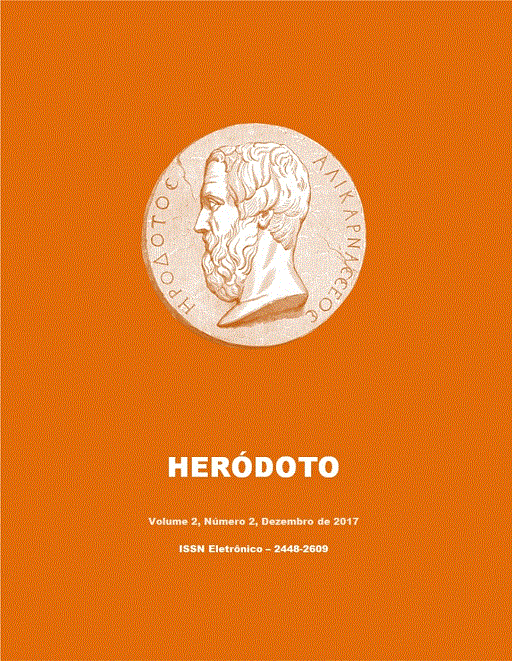The notion of true faith in the poetic work of Prudentius: an analysis of the poem Apotheosis
DOI:
https://doi.org/10.34024/herodoto.2017.v2.1108Palavras-chave:
Prudentius, Apotheosis, Christianity, identity, faith, heresy.Resumo
At a time when one was seeking to consolidate Christian principles, prompting converts to have their own social practices, differentiated from those exercised by Gentiles, Prudentius offers a work called Apotheosis, in which he advocates a uniqueness of identity for Christians, which would make them identify the errors of beliefs indicated as heretical. Presenting poetically the major departures in faith, the author seeks to provide a notion of true faith in which converts could begin to develop the right paths for those who wished to follow Christianity and obtain an eternal life after death. It is a proselytising work, which sought to provide exercise canons for the Christian faith for those already converted and for Gentiles in the process of conversion.
Métricas
Downloads
Downloads
Publicado
Edição
Seção
Licença
Autores que publicam nesta revista concordam com os seguintes termos:
- Autores mantém os direitos autorais e concedem à revista o direito de primeira publicação, com o trabalho simultaneamente licenciado sob aLicença Creative Commons Attribution que permite o compartilhamento do trabalho com reconhecimento da autoria e publicação inicial nesta revista.
- Autores têm autorização para assumir contratos adicionais separadamente, para distribuição não-exclusiva da versão do trabalho publicada nesta revista (ex.: publicar em repositório institucional ou como capítulo de livro), com reconhecimento de autoria e publicação inicial nesta revista.
- Autores têm permissão e são estimulados a publicar e distribuir seu trabalho online (ex.: em repositórios institucionais ou na sua página pessoal) a qualquer ponto antes ou durante o processo editorial, já que isso pode gerar alterações produtivas, bem como aumentar o impacto e a citação do trabalho publicado (Veja O Efeito do Acesso Livre).












